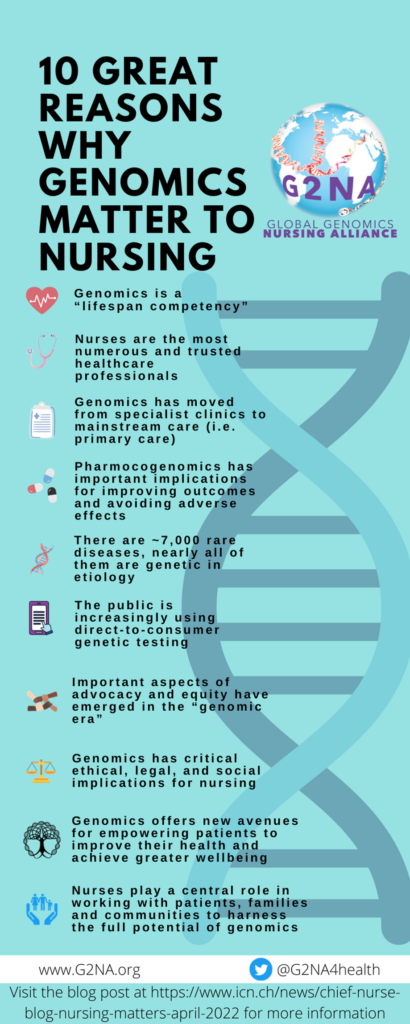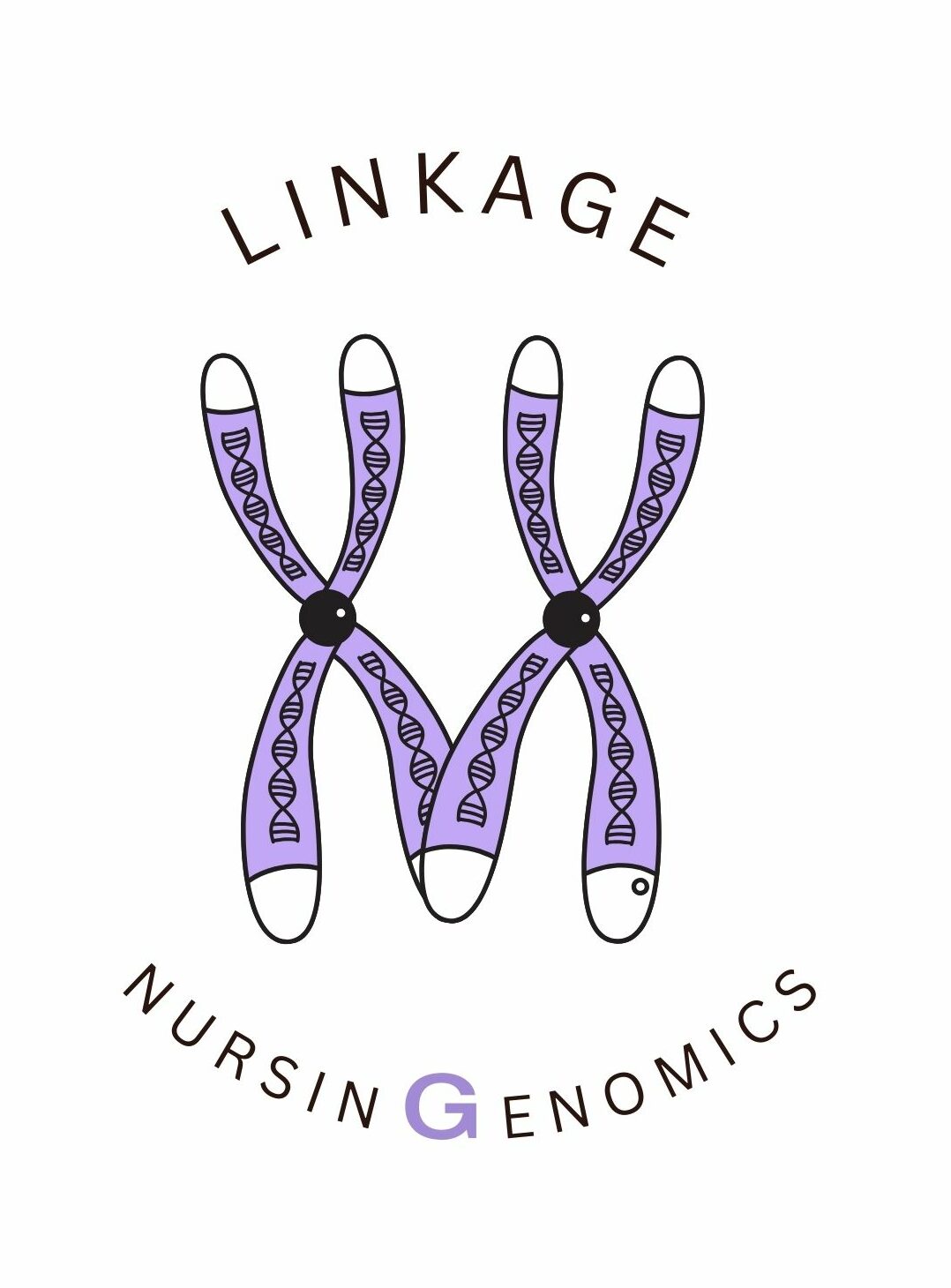G2NA
In the past, conversations about genetics (the branch of biology concerned with the study of inheritance) were typically confined to research laboratories and healthcare settings. Now, it is estimated that over 100 million people have completed direct-to-consumer genetic testing (for example 23andme), indicating that conversations about genetics and genomics (the field of biology focused on studying all the DNA of an organism) are now also happening in people’s homes. But what about nursing? Nurses have always been involved in caring for people with genetic conditions, whether the genetic cause was identified or not. We now know that genomics has a much bigger role on health, with genomic variation contributing to the risk of developing common, as well as rare diseases.
Groups of nurses around the world, including the International Society of Nurses in Genetics (founded in 1988) and the Japanese Society of Genetic Nursing (founded in 1999) have long been advocates for the establishment of genomics as a specialty practice within nursing. With the completion of the human genome project in 2003 and the subsequent sharp decrease in the price of sequencing the human genome, we are seeing genomic testing moving from specialized clinics to mainstream care. In this new genomic era of healthcare, all nurses, at all levels of preparation, need foundational genomic knowledge and skills. The Global Genomics Nursing Alliance (G2NA), established in 2017, aims to accelerate the integration of genomics across everyday nursing practice. Initiatives to support nurses achieve this goal include quarterly webinars from nurses across the globe and the development of a maturity matrix that nurse leaders can use to plan and benchmark progress in various aspects of genomic healthcare.
To celebrate DNA day (April 25th) in 2022, G2NA produced an infographic detailing the “10 Great Reasons Why Genomics Matter to Nursing” to encourage nurses to think about the impact on patients, families and communities that will result from the integration of genomics into nursing practice. We invite you to use this infographic to spark conversations about why genomics matters in your own educational institutions and practice settings.

This work is licensed under CC BY-NC-ND 4.0

